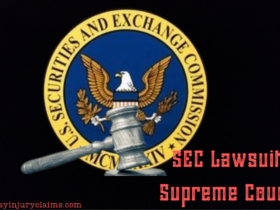Introduction
Knowing how to get a debt lawsuit dismissed is crucial if you’re facing legal action from a creditor. This process involves recognizing key reasons for dismissal, such as improper service or expired deadlines, and taking the right actions, like filing a motion to dismiss or responding within the court’s timeframe. Addressing these factors effectively can help you avoid a court judgment and manage your debt more efficiently.
A debt lawsuit occurs when a creditor files a legal claim against someone who has not paid their debt. The creditor wants the court to order the person to pay the amount owed. The process involves legal paperwork and sometimes a court hearing.
Knowing how to get a debt lawsuit dismissed is crucial. If the lawsuit gets dismissed, you won’t need to attend court or pay the debt. This can help you avoid extra stress and financial problems. Understanding the steps to dismiss a debt lawsuit can protect your rights and make the situation easier to handle.
Understanding Debt Lawsuits
Definition and Types of Debt Lawsuits
A debt lawsuit is a legal action taken by a creditor against someone who owes money. There are a few types of debt lawsuits:
- Credit Card Debt Lawsuit – When you fail to pay credit card bills, the creditor can sue you to recover the amount due.
- Medical Debt Lawsuit – If you haven’t paid medical bills, healthcare providers might file a lawsuit to get payment.
- Personal Loan Lawsuit – Creditors may sue if you default on a personal loan.
- Auto Loan Lawsuit – This occurs if you miss payments on a car loan.
- Mortgage Debt Lawsuit – When you don’t pay your mortgage, the lender might sue for foreclosure.
Common Reasons Why Debt Lawsuits Are Filed
Debt lawsuits are usually filed for these reasons:
- Unpaid Bills – When someone does not pay their bills on time, creditors may sue to recover the money.
- Default on Loans – Missing payments on loans can lead to legal action.
- Breach of Contract – Failing to meet the terms of a loan or credit agreement can cause a lawsuit.
- Collection Attempts Fail – If collection agencies cannot get payment, they may turn to the court for help.
Reasons a Debt Lawsuit Might Be Dismissed
Lack of Standing
A debt lawsuit might be dismissed if the creditor does not have standing. This means the creditor must prove they have the legal right to sue you. If they cannot show they own the debt or have a legal claim, the court may dismiss the case.
Statute of Limitations Expired
Each type of debt has a statute of limitations, which is the time limit for filing a lawsuit. If the creditor files a lawsuit after this time period has passed, the case might be dismissed. This limit varies by state and type of debt.
Improper Service of Process
For a debt lawsuit to proceed, you must be properly served with the legal documents. If the creditor fails to follow the correct procedure for service of process, the court may dismiss the case. Proper service ensures you have the chance to respond.
Errors in the Complaint
A complaint is the document that starts the lawsuit. If there are errors in the complaint, such as incorrect information about the debt or missing details, the court may dismiss the lawsuit. Accuracy in the complaint is crucial for a valid legal claim.
Failure to State a Claim
A debt lawsuit can be dismissed if the creditor fails to state a claim. This means the creditor must show how you owe the debt and why the court should rule in their favor. If they do not provide enough information or legal basis, the lawsuit may be dismissed.
Prime Lawsuit PFAS: Key Facts and Impacts of the Contamination Case
Steps to Take After Receiving a Debt Lawsuit
Review the Lawsuit Documents Carefully
When you receive a debt lawsuit, start by carefully reviewing all the documents. Check for details such as the amount of debt, the creditor’s claims, and the deadlines. Look for any errors or inaccuracies that might help in your defense.
Respond to the Complaint Within the Given Timeframe
You must respond to the complaint within the timeframe set by the court. This is usually specified in the lawsuit documents. Failing to respond on time can lead to a default judgment against you, which means the court may automatically rule in favor of the creditor.
Consider Consulting a Legal Professional
Think about consulting a legal professional for help. An attorney can provide guidance on how to handle the lawsuit, review your documents, and assist with filing responses or motions. They can also help you understand your options and rights in the case.
Defenses to Assert in a Debt Lawsuit
Disputing the Debt Amount
You can dispute the debt amount if you believe the amount claimed is incorrect. Check the details provided in the lawsuit and compare them with your records. If there are discrepancies or errors, raise them as a defense. For example, the creditor might have included interest or fees that are not valid.
Claiming the Debt Is Not Yours
If you believe the debt is not yours, you can assert this defense. You need to show that you did not incur the debt or that someone else is responsible. This might involve providing evidence such as account statements or proof of identity errors.
Arguing the Debt Has Been Paid
If you have paid the debt, you can argue this in your defense. Provide proof of payment such as receipts, bank statements, or confirmation letters. This can help show that you do not owe the amount the creditor is claiming.
Challenging the Creditor’s Ability to Collect
You can also challenge the creditor’s ability to collect the debt. This defense involves questioning whether the creditor has the legal right to enforce the debt. For instance, the creditor might need to prove they own the debt or that they have the proper documentation to collect it.
How to File a Motion to Dismiss
Understanding a Motion to Dismiss
A motion to dismiss is a legal request asking the court to terminate the lawsuit before it goes to trial. You use this motion to argue that the case should be dismissed for specific reasons, such as errors in the complaint or lack of legal basis.
Preparing and Filing the Motion
To prepare and file the motion, start by drafting a written request that outlines why the lawsuit should be dismissed. Include relevant arguments and evidence supporting your request. Once the motion is prepared, file it with the court where the lawsuit was filed. Make sure to follow the court’s rules and procedures for filing documents.
Required Documents and Evidence
When filing a motion to dismiss, you need to include several documents:
- Motion Document – The written request detailing the reasons for dismissal.
- Supporting Memorandum – A document explaining your legal arguments and citing relevant laws or cases.
- Evidence – Any documents or proof that support your reasons for dismissing the case, such as copies of the lawsuit and related correspondence.
What to Expect During the Hearing
At the hearing, you will present your arguments to the judge. Expect the creditor to respond and present their side. Be prepared to answer questions from the judge and provide additional evidence if needed. The judge will review both sides and decide whether to grant or deny the motion to dismiss.
Negotiating with Creditors
Exploring Settlement Options
When negotiating with creditors, you can explore settlement options to resolve the debt without going to court. A settlement involves agreeing to pay a reduced amount, often less than what is owed, in exchange for resolving the debt. Propose a reasonable offer based on your financial situation and be prepared to negotiate terms until both parties reach an agreement.
Understanding Consent Judgments and Payment Plans
Consent judgments are agreements where you and the creditor agree to a court judgment outlining the terms of repayment. If you cannot pay the debt in full, you might negotiate a payment plan. This plan allows you to make regular payments over time. Make sure any agreement is documented in writing and approved by the court to avoid future disputes.
Role of a Lawyer in Debt Lawsuits
When to Hire a Lawyer
Consider hiring a lawyer if you receive a debt lawsuit. It’s particularly important if the case involves significant amounts of money, complex legal issues, or if you feel overwhelmed by the process. A lawyer can provide guidance on the best course of action, help you understand your rights, and represent you in court.
How a Lawyer Can Help with Dismissal
A lawyer can assist with getting a debt lawsuit dismissed by:
- Reviewing the Case – Examining the lawsuit documents for errors or weaknesses.
- Filing Motions – Preparing and filing a motion to dismiss based on legal grounds.
- Gathering Evidence – Collecting and presenting evidence that supports your defense.
- Negotiating – Engaging in settlement discussions with the creditor to resolve the issue outside of court.
- Representing You in Court – Handling hearings and arguments to strengthen your case for dismissal.
Alternatives to Dismissal
Bankruptcy as an Option
If you cannot get a debt lawsuit dismissed, bankruptcy might be an alternative. Bankruptcy is a legal process that can help you eliminate or reduce your debts. It involves filing a petition with the court, which will assess your financial situation and determine how your debts will be handled. Bankruptcy can provide relief from debt collection and lawsuits, but it also has long-term effects on your credit.
Debt Consolidation and Settlement
Debt consolidation involves combining multiple debts into a single loan with one monthly payment, often at a lower interest rate. This can make managing payments easier and reduce overall debt. Debt settlement is another option where you negotiate with creditors to pay a reduced amount to settle the debt. Both alternatives can help manage debt and potentially resolve the lawsuit, but they may impact your credit score and financial situation.
Common Mistakes to Avoid
Ignoring the Lawsuit
One of the biggest mistakes is ignoring the lawsuit. If you do not respond or address the lawsuit, the court may issue a default judgment against you. This means you could automatically lose the case, and the creditor may obtain a court order to collect the debt, including wage garnishments or bank levies.
Failing to Respond in Time
Failing to respond in time is another critical error. Lawsuits come with deadlines for responses and filings. Missing these deadlines can result in losing your chance to present your case or defend yourself. Always check the dates in the lawsuit documents and make sure to meet all deadlines.
Making Incomplete or Incorrect Arguments
Making incomplete or incorrect arguments can weaken your case. Ensure that your responses and defenses are accurate, detailed, and supported by evidence. Incorrect or incomplete information can lead to dismissal of your arguments and favor the creditor’s claims. Review your documents carefully and seek professional advice if needed.
Conclusion
In conclusion, understanding how to get a debt lawsuit dismissed involves recognizing key factors such as the reasons for dismissal, including improper service or errors in the complaint, and knowing the essential steps to take, such as responding promptly and considering a motion to dismiss. It’s important to avoid common mistakes like ignoring the lawsuit or making incorrect arguments. Additionally, exploring alternatives like bankruptcy or debt consolidation can offer solutions. Take proactive steps by consulting a lawyer and carefully reviewing your case to protect your rights and manage your debt effectively.
FAQs
Q. What should I do immediately after receiving a debt lawsuit?
Review the documents carefully, respond within the timeframe, and consider consulting a lawyer.
Q. What are common reasons for dismissing a debt lawsuit?
Common reasons include improper service, expired statute of limitations, errors in the complaint, and lack of standing.
Q. How can I challenge a debt lawsuit if I believe the debt amount is incorrect?
Dispute the amount in your response and provide evidence showing discrepancies in the debt.
Q. What is a motion to dismiss, and how do I file one?
A motion to dismiss asks the court to end the lawsuit. Draft and file the motion with the court, and prepare for a hearing.
Q. What are the alternatives to getting a debt lawsuit dismissed?
Alternatives include filing for bankruptcy or negotiating debt consolidation and settlement.
Dive into the world of Law with Easy Injury Claims. Visit our website to uncover endless inspiration!












Got a Questions?
Find us on Socials or Contact us and we’ll get back to you as soon as possible.